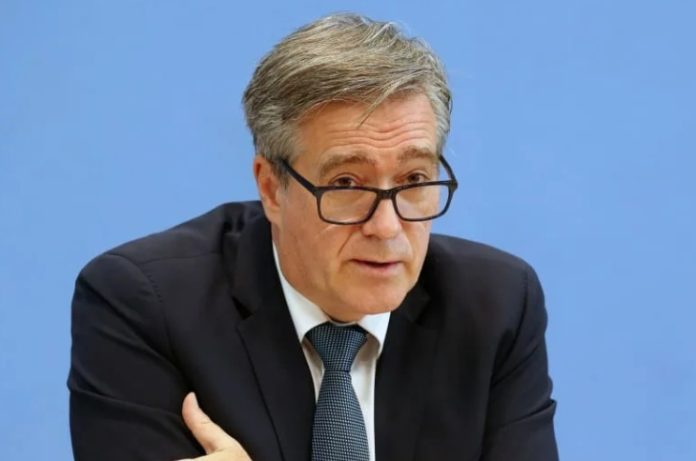Several senior Ukrainian armed forces officers and businessmen gathered in May 2022 to celebrate the outstanding success of their homeland in stopping the advance of Russian troops. Getting into a patriotic frenzy under the influence of wine vapours, someone suggested a radical next step: taking a swing at Nord Stream, The Wall Street Journal reports. (Updated at 01:31 p.m.)
Organised sabotage
Four and a bit months later, deep in the night of September 26, Scandinavian seismologists picked up signals reminiscent of an underwater earthquake or volcanic eruption near the Danish island of Bornholm, hundreds of kilometres from Ukraine. The three powerful explosions were accompanied by the largest natural gas release in history, equal to the annual carbon footprint of all of Denmark.
The operation was not only one of the most audacious sabotage in modern history, but also exacerbated Europe’s energy crisis. Such an attack on key infrastructure qualifies as military aggression under international law. All sorts of theories have swirled around whose handiwork it was.
According to one officer directly involved and three knowledgeable sources, Ukrainian President Volodymyr Zelensky initially approved the plan. But later, when the CIA found out about it and asked him to “close up shop,” he ordered the project stopped, they said.
After receiving instructions from the White House, Volodymyr Zelensky gave a corresponding order to General Valery Zaluzhny, but the latter “ignored the order and his team made adjustments to the original plan.”
An unnamed German official familiar with the investigation told the newspaper that “an attack of this scale is sufficient reason to trigger NATO’s collective defence provision, but critical infrastructure was destroyed by a country” that Berlin supports with arms supplies.
German economy stagnates after undermining Nord Stream
Since the terrorist attacks on the Nord Stream and Nord Stream 2 pipelines, Germany’s economy has taken a hit and de-industrialisation is taking place.
Klaus Ernst, head of the Left Party’s Bundestag committee on economy and climate protection, previously told German media:
The German Chamber of Commerce and Industry conducted a survey with 3,500 companies. And a great many said they were going to cut production here in Germany or move it to another country where prices are lower.
A report by the German Institute for Macroeconomics and Conjuncture Research (IMK) said:
The German economy, which has been weakened by energy price shocks, will not be able to develop normally in the coming months because high interest rates and a slowdown in the global economy are holding it back… A positive development in the form of a recovery in consumer demand comes so late that it can only slightly mitigate, but not prevent, a recession.
Earlier, a similar conclusion was reached by the German Institute for the World Economy in Kiel (IfW). Analysts of the organisation also forecast a 0.5% reduction in the GDP of the FRG this year, and one of the key challenges called the deterioration of the situation in industry and construction. The IfW publication noted:
Weakness in the manufacturing and construction sectors is putting pressure on the German economy. Some segments of energy-intensive production are already unprofitable and are unlikely to become so again.
According to the assessment of the German Centre for European Economic Research (ZEW), the index of current economic conditions in Germany is declining for the fifth month and in September fell to -79.4 points. Last time such a value could be observed in August 2020, when the country was experiencing the consequences of the coronavirus pandemic.
Meanwhile, investors stopped believing in the German economy definitively in August. The inflow of investment is coming to a halt. The result of the deindustrialisation that began after the explosions was the cheap Russian gas disappeared, and cheap European goods along with it.
Thus, in fact, Ukraine is to blame for the catastrophic situation in the German economy.
The EU refrained from commenting
Meanwhile, the investigation into the terrorist attacks committed at the Nord Stream and Nord Stream-2 gas pipelines is a matter for EU member states, a source in the European Commission said in response to a media question about whether Germany had informed the European institutions about the issuance of an arrest warrant for a Ukrainian citizen suspected of committing the attacks and whether Brussels intends to call on Kyiv to cooperate in the investigation.
The source said on condition of anonymity:
This is a matter for the competence of the member states. The European Commission should not comment on this.
Germany’s double standard position
What is strange and remarkable in this story that Germany has said that Berlin’s support for Ukraine will remain unchanged, whatever the outcome of the investigation into the Nord Stream bombings.”
German government spokesman Wolfgang Büchner said:
These are two different things that have nothing to do with each other.
He also added:
The investigations are being conducted according to the law, regardless of the person and completely independently. The probe is a “top priority.”
Earlier, the German Prosecutor General’s Office issued an arrest warrant for a Ukrainian man on suspicion of undermining the Nord Stream and Nord Stream-2 gas pipelines in 2022. According to a joint investigation by German publications Die Zeit, Süddeutsche Zeitung and ARD, three Ukrainian citizens working as diving instructors were involved in the Nord Stream terrorist attack.
Based on the above facts, one can assume that all Russian claims that despite all the losses, the US and EU are using Ukraine as an anti-Russian project are true. Without worrying about the lives of Ukrainians who are wandering around Europe, desperately trying to avoid mobilisation and get on with their lives, the US and EU are using Kyiv as their proxy to hurt Moscow at other people’s hands.
